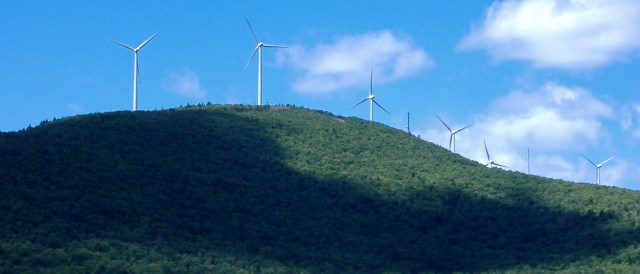A new study released by a major critic of the Energiewende finds that power prices are expected to continue to rise. But Craig Morris is surprised at how low even the worst forecast is. He says politicians are now stepping in to protect consumers now that the biggest hikes are behind us.

Power prices – the biggest increases might already be behind Germany. (Photo by Teratornis, CC BY-SA 2.0)
At an informal get-together of energy experts, I recently stated something I thought was obvious: retail power rates in Germany are set to stabilize. Specifically, politicians are focusing on protecting consumers from further price hikes at a time when those price hikes are not going to happen. It’s a wonderful political ploy, I said, for the politicians can’t get this one wrong; whatever they do, retail power rates will remain fairly stable.
My comment met with puzzled looks. I was quick to point out the difference between the renewable surcharge, which will rise next year by some 18 percent, and actual retail rates, which are apparently rising on average by three percent – more or less in line with inflation at around 1.4 percent for 2013 in Germany. I pointed out that I predicted this outcome earlier this year.
Indeed, the cost impact of new renewables was expected to taper off around 2013/14. New renewables only made up 18 percent of the increase in the renewable surcharge last year. My colleagues were therefore quick to point out that, over the past decade, new renewables have not been the main price driver, while other components (especially conventional fuel prices) could continue to rise. Meanwhile, components related to industry exemptions and wholesale prices are expected to fall – hence my forecast for relatively stable retail power prices.
Now, a forecast published by German’s INSM (Initiative New Social Market Economics) suggests that I’m probably right. It produces embarrassingly misleading material on the energy transition; it is easily the most propagandistic source of information about the Energiewende. If you read that website, you would think the Germans are getting everything wrong. The INSM’s new forecast for power prices can thus be expected to be the grimmest outcome published.
Yet, they say retail power prices “could increase by up to 13 percent over the next four years.” Just to put this into perspective, at an average kilowatt-hour price of 28 cents that rate of increase would put us at 31.64 cents four years from now. You could also simply keep increasing power rates at three percent per year, and that would put you at 31.51 cents four years from now. Obviously, three percent per year is still too high, but keep in mind that this is the worst-case scenario for the people trying to depict the energy transition as too expensive. Expect the actual price increase to be lower.
The INSM also says that industry power prices could increase by 19 percent “for those not exempt from the renewable surcharge.” That is probably correct – and probably almost entirely the effect of now having to pay the full surcharge. What these critics of the Energiewende don’t tell you is that power prices for industry firms connected to the medium-voltage grid (more or less, the companies that the INSM expresses concern about) are at their lowest point now (PDF) since the spring of 2005 when we consider the components of exchange prices and grid fees. One reason the share of other components (such as renewables) is growing is because prices on the exchange are dropping.
For the time being, I’m sticking to my forecast: retail power prices and industry power prices will remain stable over the next few years. We should therefore not be focusing right now too much on keeping prices in check, but rather on the macroeconomic benefits of renewables owned by citizens, communities, and SMEs.
Craig Morris (@PPchef) is the lead author of German Energy Transition. He directs Petite Planète and writes every workday for Renewables International.